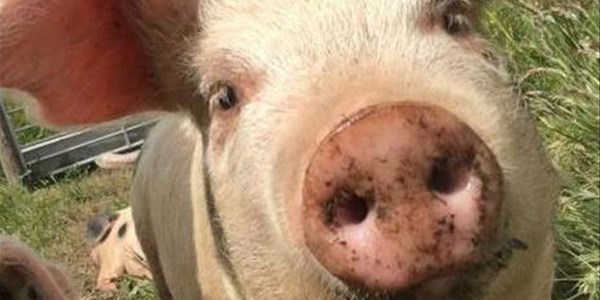Agri Hour
Practise good biosecurity to prevent ASF outbreaks─── ELSABÉ RICHARD 05:30 Tue, 09 Feb 2021

A total of 43 African Swine Fever (ASF) cases have been reported in South Africa since April 2019.
Dr Mpho Maja, Director of Animal Health at the Department of Agriculture, spoke to OFM News about what the symptoms of this virus are as well as how to prevent an outbreak in piggeries.
See PODCAST below
What is ASF?
Maja says ASF is a disease that is caused by a virus. The virus mainly affects pigs – both domestic as well as wild pigs. She adds that ASF is not a zoonosis. This means that the virus cannot be transmitted from pigs to humans. Furthermore, Maja says once the virus is introduced into a piggery, it will kill the majority of the animals.
How do animals get infected?
Infection occurs when pigs get into contact with other infected animals. Maja says that this usually occurs when farmers do not confine their pigs and they roam around freely.
Another way that pigs can be infected with the virus is through feeding pigs kitchen waste that may be containing infected meat. Maja explains that the virus can survive for very cold or frozen material. She adds that the virus can also survive when the meat is not properly cooked.
She further states that this is the reason why there is a general prohibition of feeding kitchen waste to pigs – unless it has been cooked at 100 degrees celsius for at least 60 minutes.
Furthermore, pigs can also contract ASF through contaminated equipment or formites. Maja says that this typically occurs when the owner or someone who works at the piggery visits an infected piggery and bring equipment from the infected establishment to theirs.
Which provinces/areas reported outbreaks?
Provinces currently experiencing ASF outbreaks are the Eastern Cape, Mpumalanga and Gauteng. Maja says the eMbalenhle area in Mpumalanga seems to have the presence of the virus going around at low levels. She says piggeries in Gauteng became infected through pigs that were transported from the abovementioned area to the province.
Have these outbreaks been closed?
Maja says the outbreaks that were reported in the Free State, as well as the Northern Cape, were closed in 2020.
What are the symptoms of ASF in animals?
Signs that pig farmers should look out for includes high temperatures. Maja says farmers should also look out for animals who refrain from eating as this may be a sign that they are not feeling well. She adds that ASF also causes bleeding into the skin and this is evident by visible red patches on the skin – especially on their abdomen.
Other symptoms include vomiting, coughing, difficulty in walking and paralysis. Maja says that close to 100% of infected pigs usually die.
What treatments are available?
At the moment, there is no treatment nor vaccine for ASF. With that being said, Maja says that the best way to prevent the virus from infecting piggeries is to avoid introduction of the virus into herds. She explains that this could be done by practising good biosecurity – confine pigs, feed them commercial feeds if possible. “If you cannot afford to and you are feeding [pigs] kitchen waste, make sure that it does not have pieces of meat and that it is also thoroughly cooked for at least an hour,” says Maja.
Also, farmers should be mindful of where they buy their pigs. Maja says that farmers should, when buying pigs, isolate them for at least one month before introducing them to the rest of the herd.
OFM News














